The ISEMPH 2024 Evolutionary Psychiatry Meeting in Durham, UK
Dr Gurjot Brar writes about the recent meeting in Durham, UK
The International Society for Evolution, Medicine and Public Health held a conference in Durham, UK last week. Part of this conference included a meeting over two days focused on Evolutionary Psychiatry with several notable figures in the field.
Durham was an excellent venue, known for its university founded in 1832 which is the third-oldest in the country (first and second place go to Oxford and Cambridge respectively). Its also known for its cathedral and castle.
I also highly recommend the riverside walk which is particularly enchanting and takes you from the town to the university offering splendid views of the cathedral and castle.
The day began over coffee in an intimate location in Lindisfarne Centre by St Aidan’s college. Once people had found their seats (and goodie bags), Dr Riadh Abed and Dr Paul St John Smith, gave the opening remarks before beginning the first talk of the day on an introduction to Evolution & Psychiatry:
This very welcome talk was followed by Daniel Nettle’s keynote talk on evolution and depression. In it he discusses the impact of depression on the immune and metabolic systems:
Broken brain framing does not remove blame and stigma, in fact this study found the opposite.
This was followed by an extremely popular presentation by the dynamic duo Nikhil Chaudhary and Annie Swanepoel on what we can learn from hunter-gatherers:
Alloparents are almost always in close proximity, with half of direct care being provided by others.
This project will attempt to tackle the misleading narrative of exclusive mother care which can cause unnecessary stress, guilt and shame.
Up next was Leif Kennair from Norway discussing depression from the perspective of anxiety disorders and what he has learned from his research including an anecdote of treating shrimp phobia in under 45 mins on TV in Oslo:
Rumination is not adaptive and reducing negative processing through therapy has lasting benefits on depression.
Negative processing of all forms not generally adaptive?
Henry O’Connell discussed the clinical and practical aspects of EP next and what psychiatrists can take away into their clinical practice:
To round off day one, Marsden Maguire from Washington DC, USA led a discussion on clinical applications.
This was followed by dinner and drinks at the lovely Cellar Door in Durham town:
The second day promptly began with a highly anticipated talk by Robin Dunbar from Oxford on the social evolution theory for understanding relationships:
This was followed by another popular talk by Randolph Nesse who discussed if social evolution theory can be useful for understanding relationship problems (apologies no pictures are available currently for this talk).
Riadh Abed then spoke about the Evobiopsychosocial Model and its promise and challenges:
To bring the meeting to a close, two minute comments were given by several participants from diverse backgrounds to inspire breakout group discussions about what specific actions that will encourage the healthy growth of evolutionary psychiatry.
This led to some highly energised breakout groups with discussion to identify the most tractable big questions for the field and strategies for getting researchers and clinicians up to speed and funded to answer them.
Finally these were presented by a person from each group and further questions and comments were invited.
The meetings came to a close over lunch where new friendships and connections exchanged contact information and everyone reflected on the insights from the meeting:

If you enjoyed this article and would like to discover more about Evolutionary Psychiatry please consider:
subscribing to our Substack to receive regular content updates
visiting the webpage of the Evolution and Psychiatry Special Interest Group within the College of Psychiatrists of Ireland
visiting the webpage of the Evolutionary Psychiatry Special Interest Group within the Royal College of Psychiatrists
exploring a Youtube playlist on curated presentations by the Evolution and Psychiatry Special Interest Group within the College of Psychiatrists of Ireland
exploring the Youtube page of the Evolutionary Psychiatry Special Interest Group within the Royal College of Psychiatrists
exploring the Evolving Psychiatry podcast








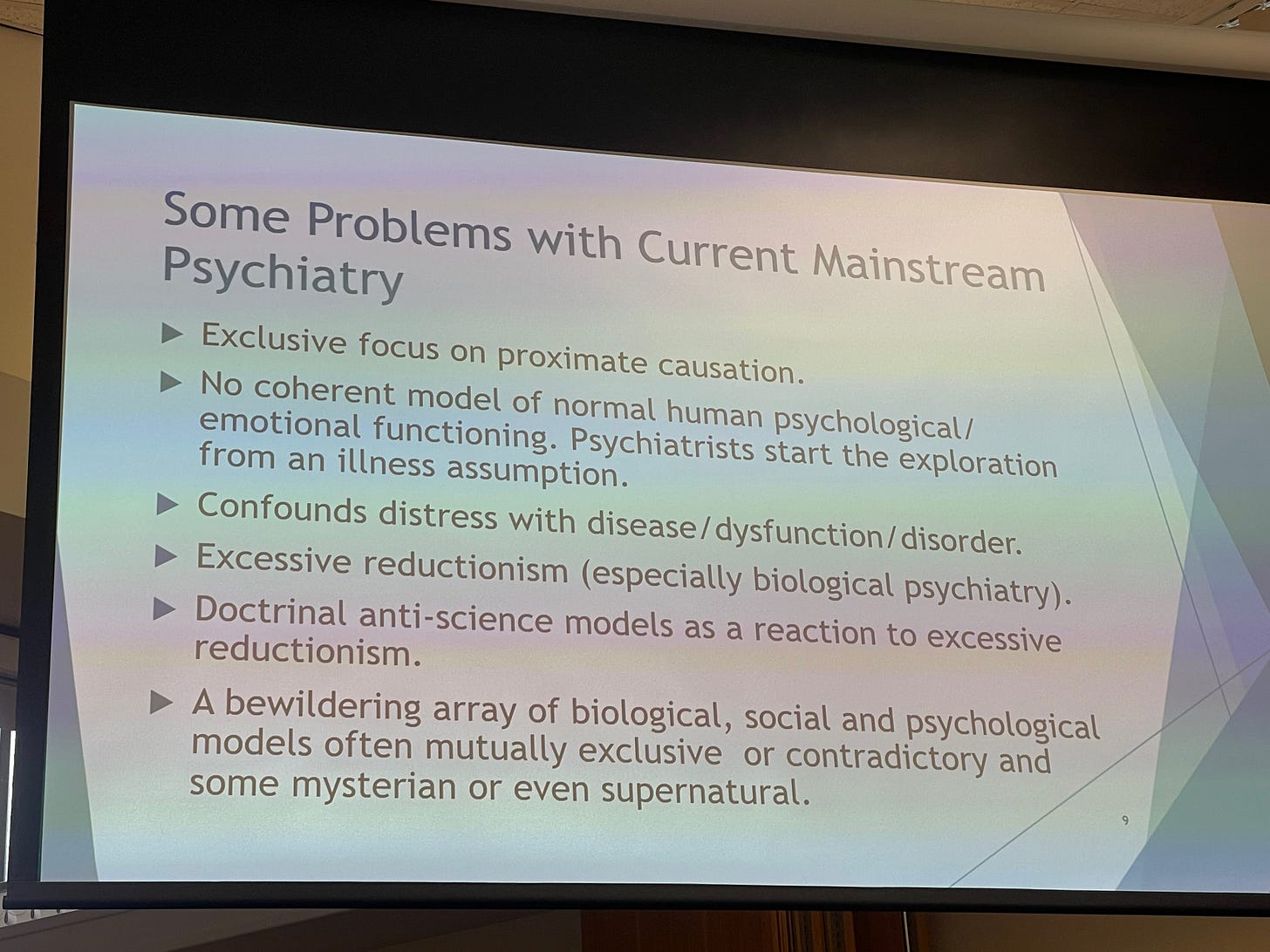
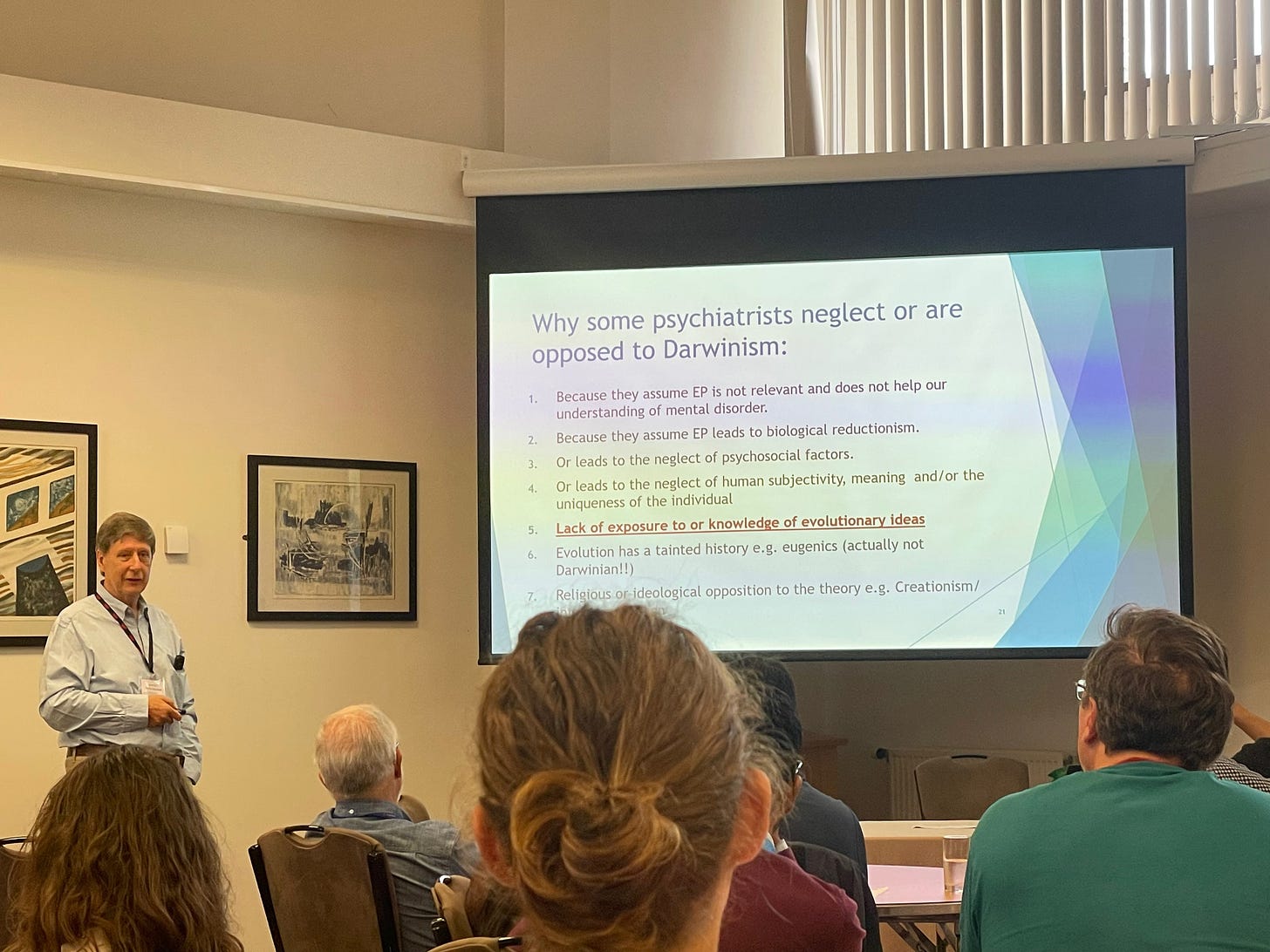







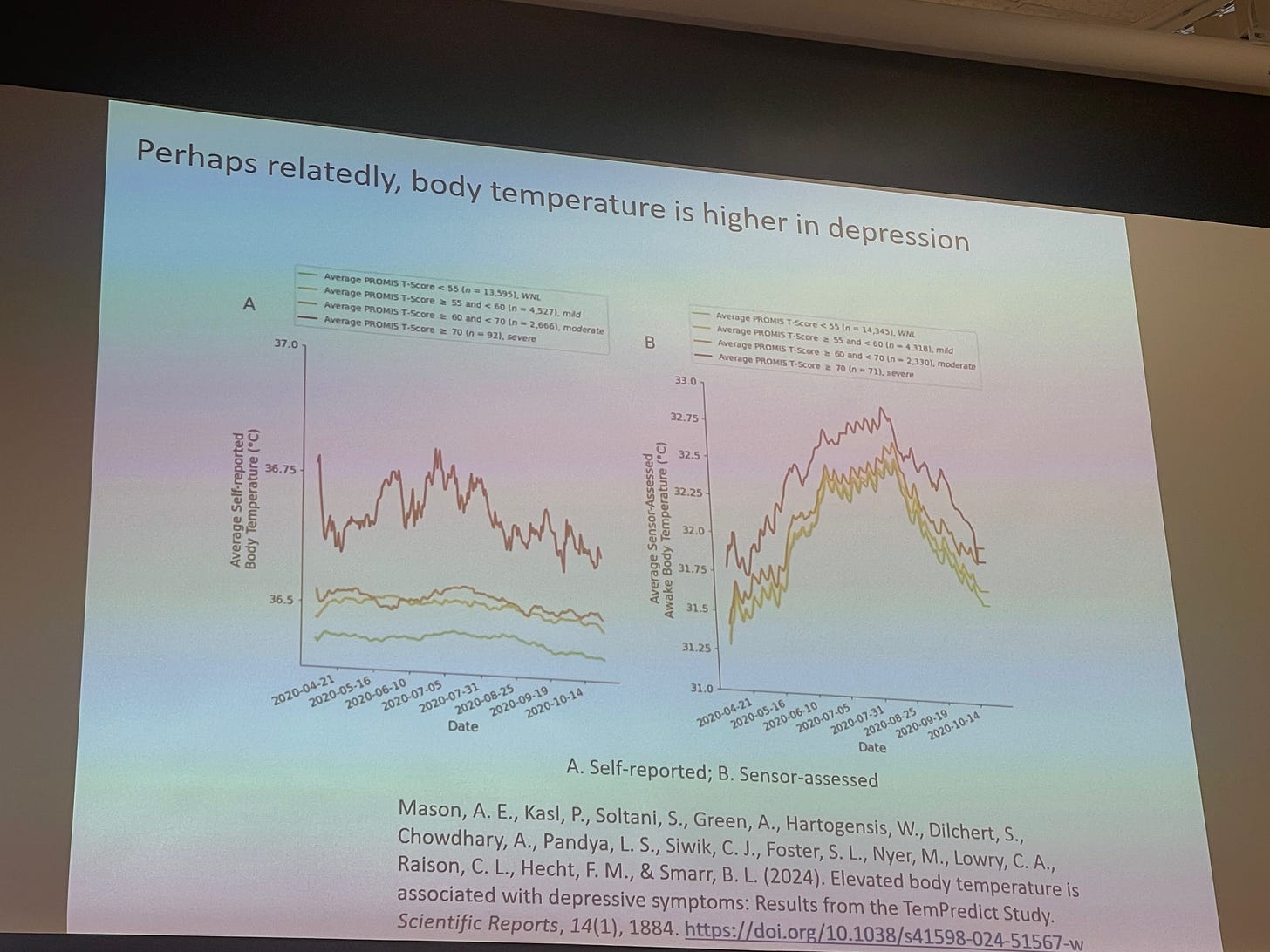
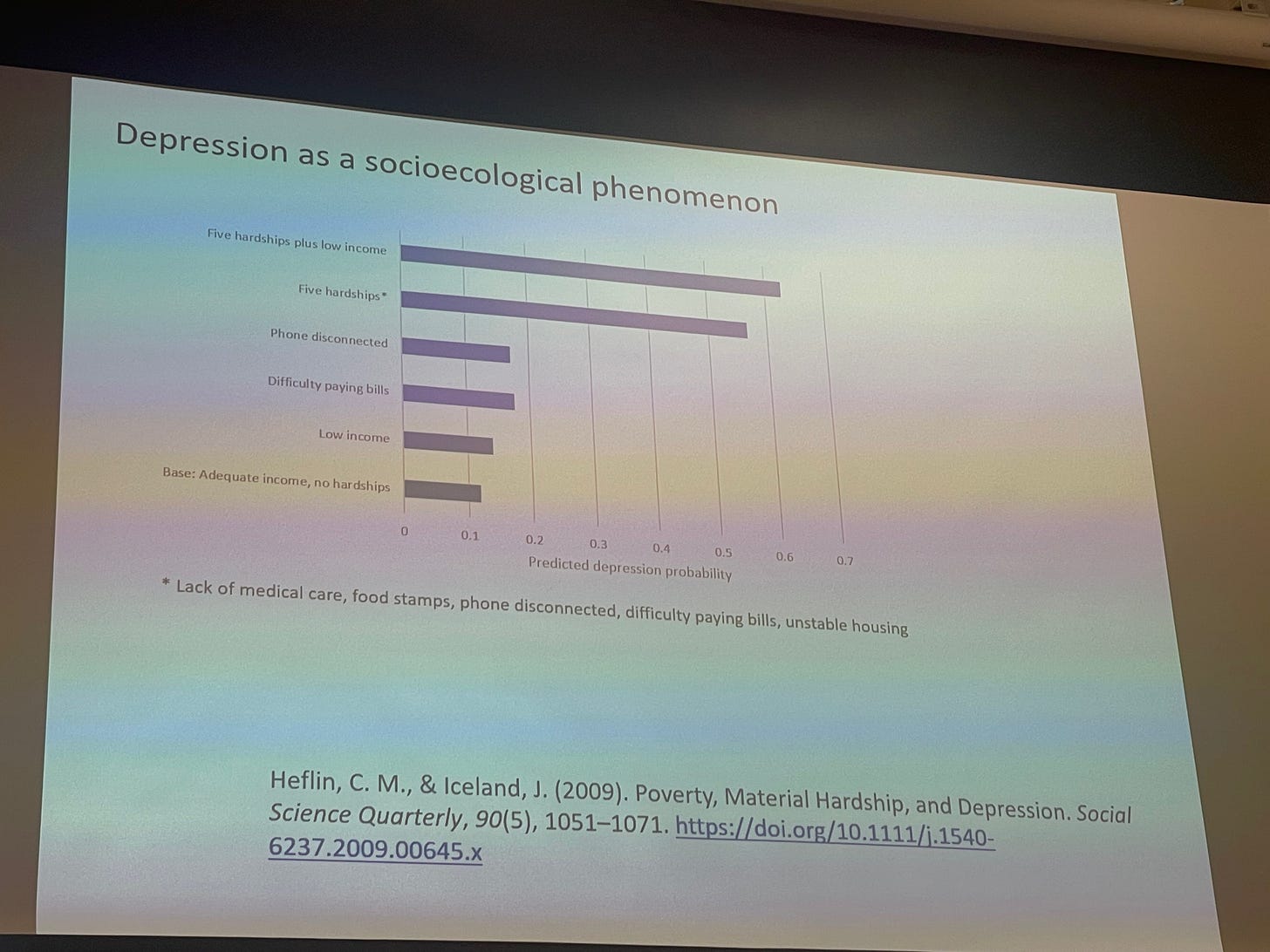
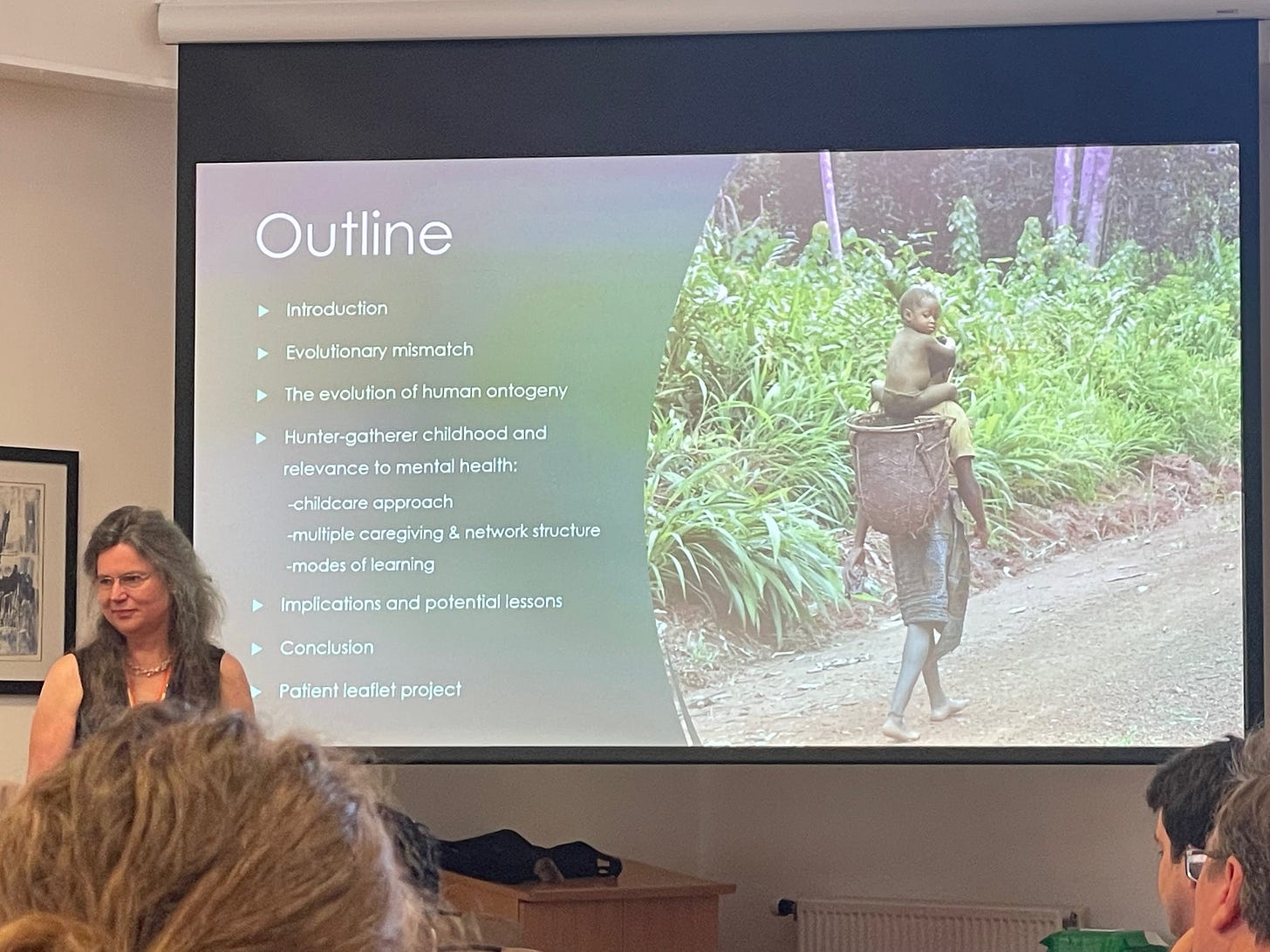
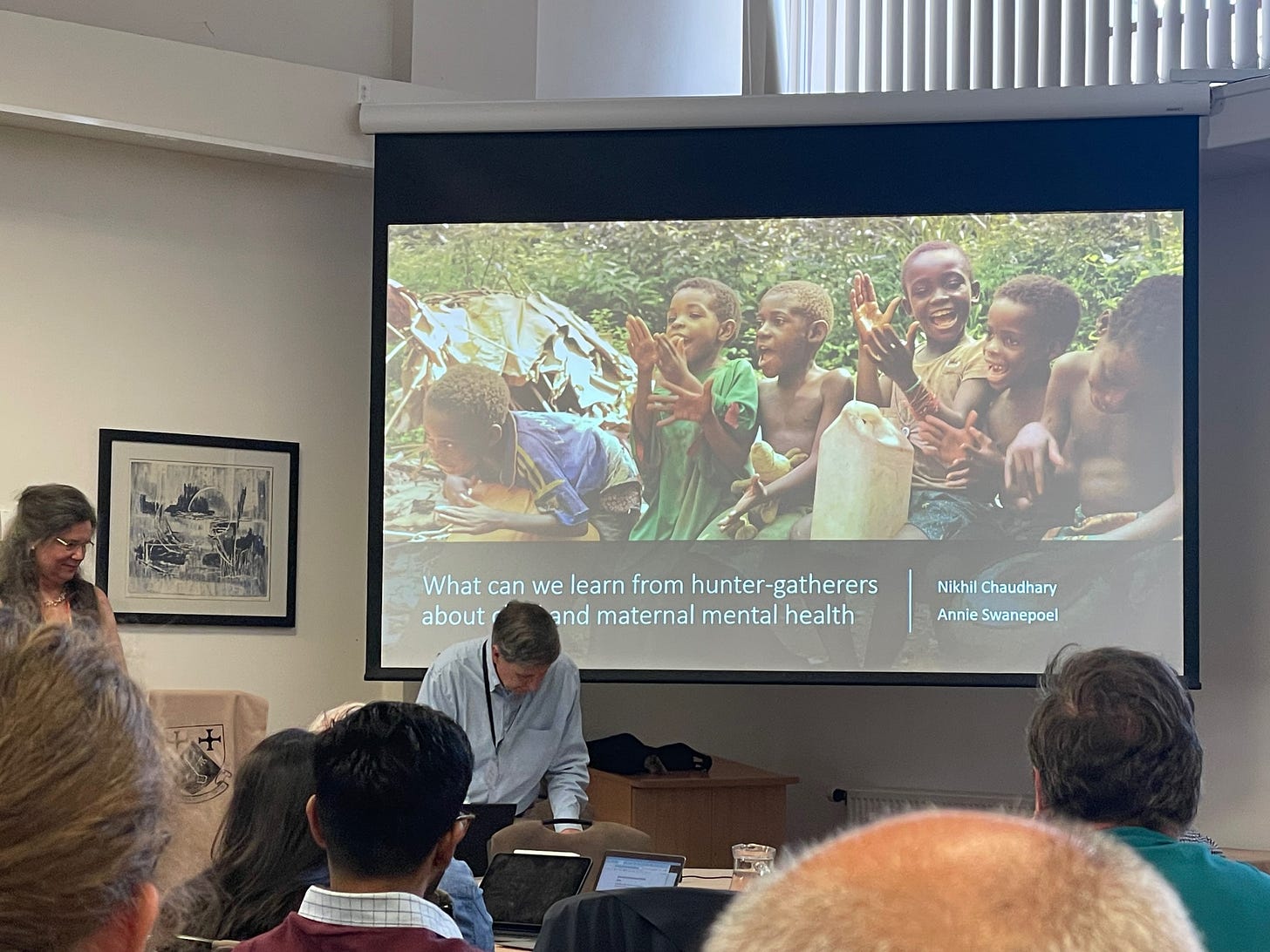




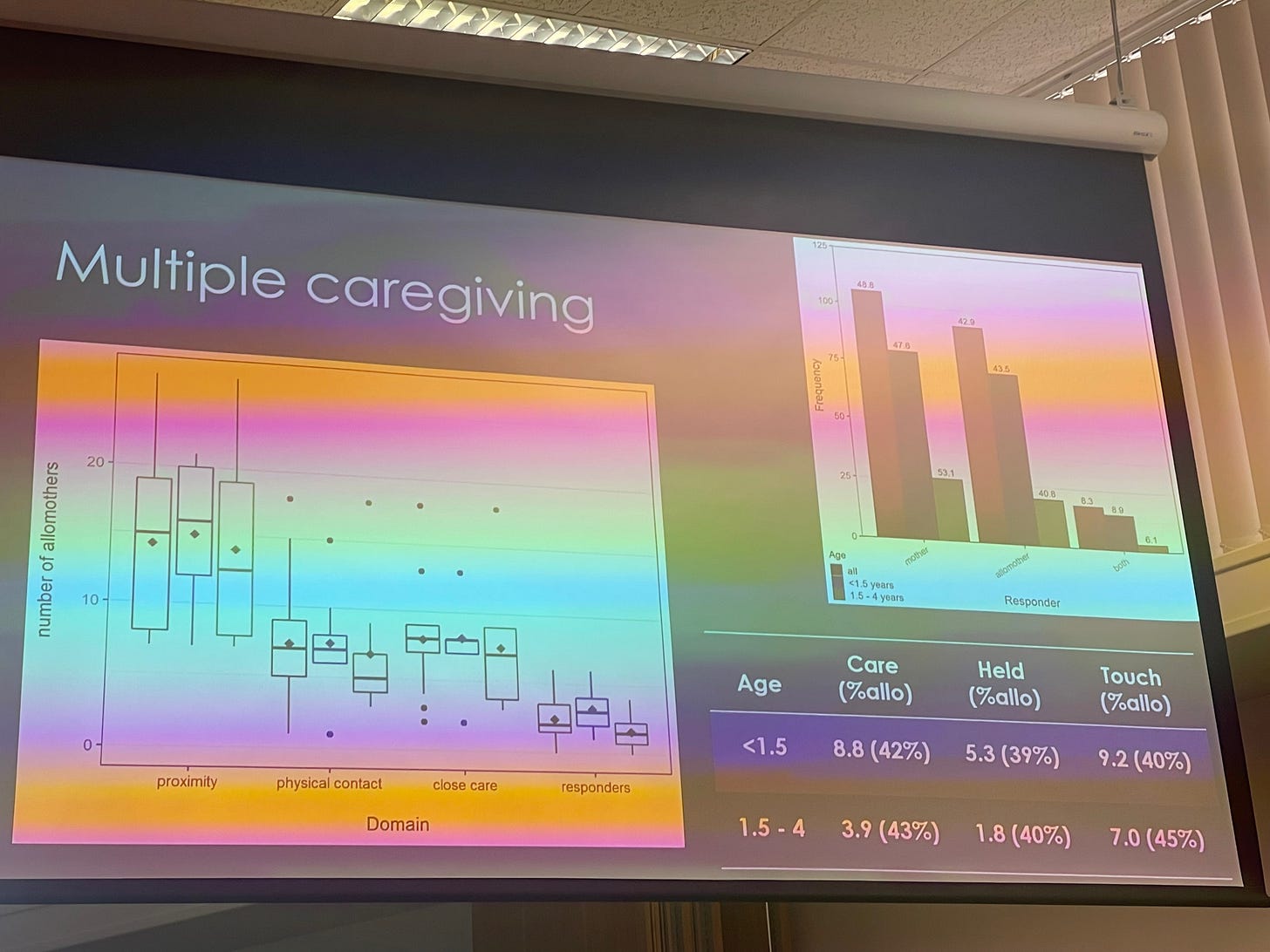
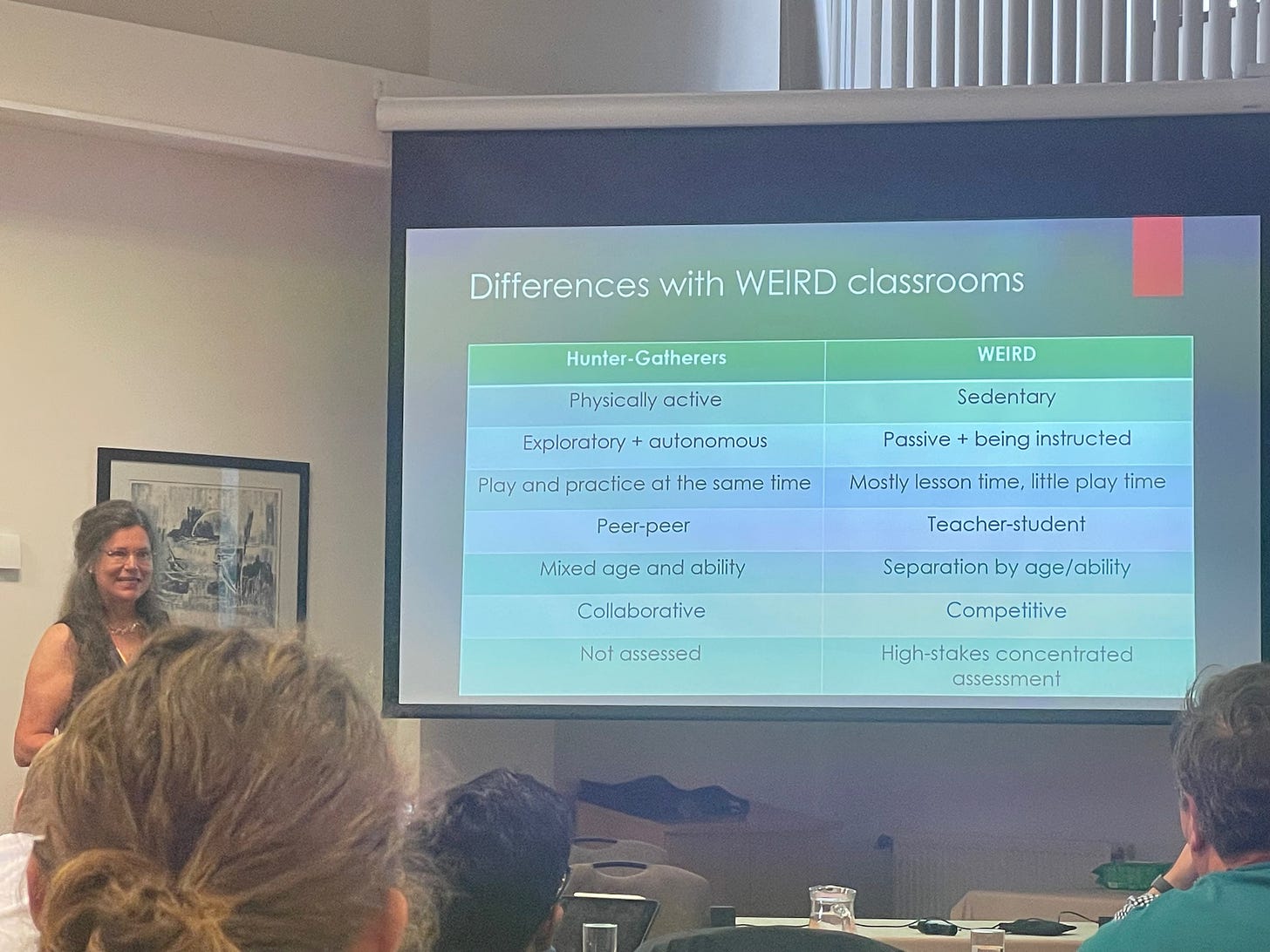

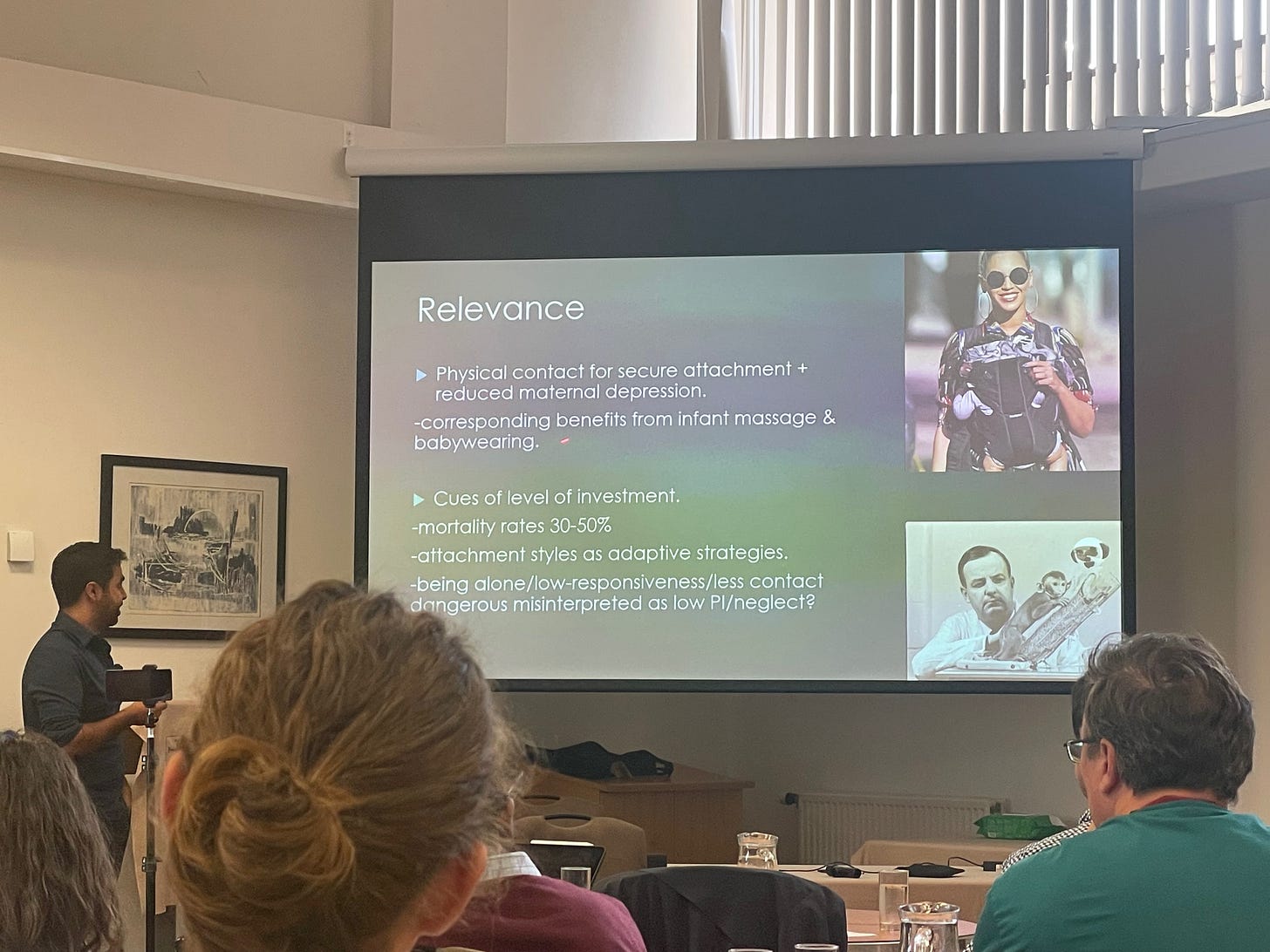
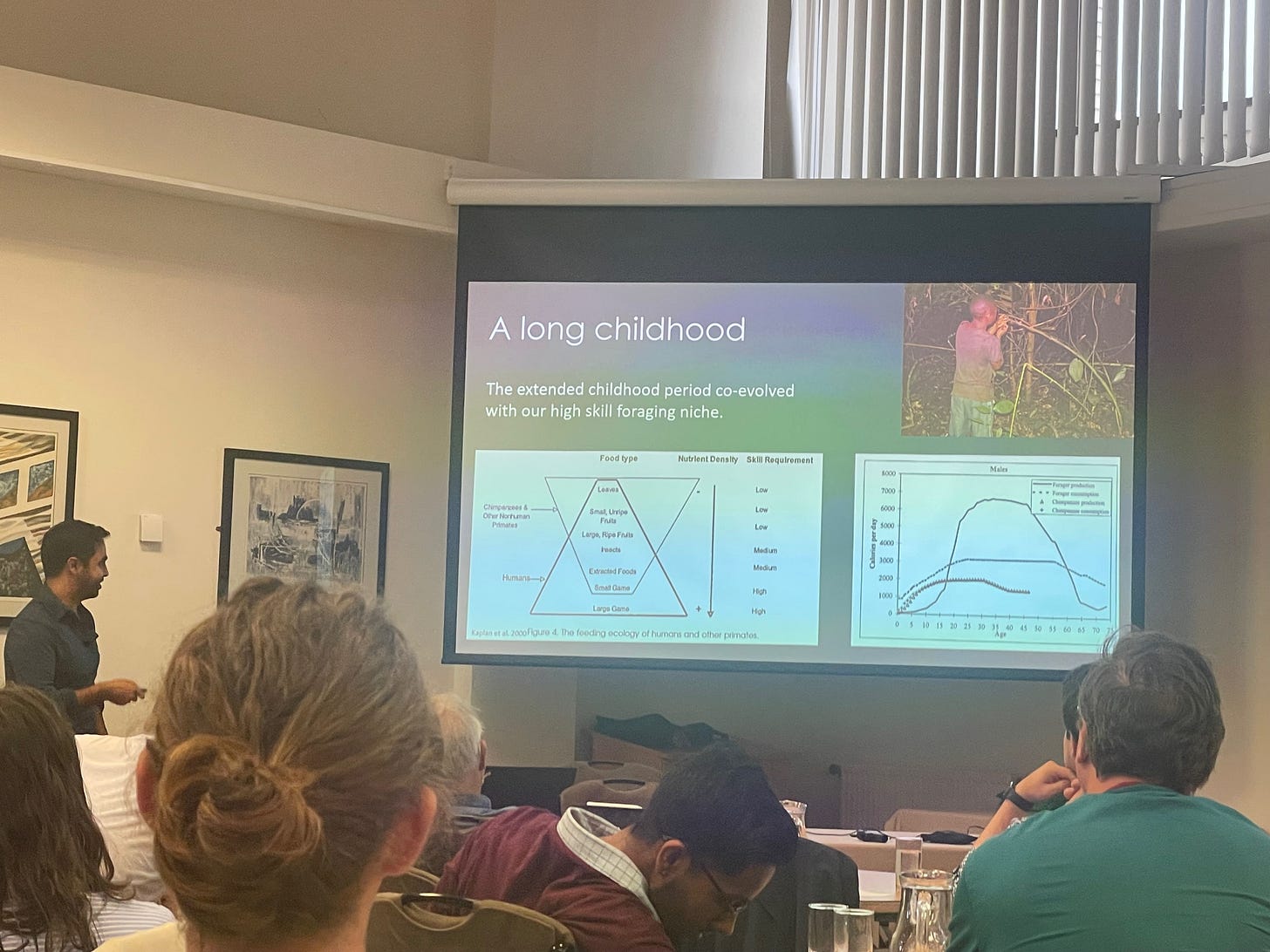
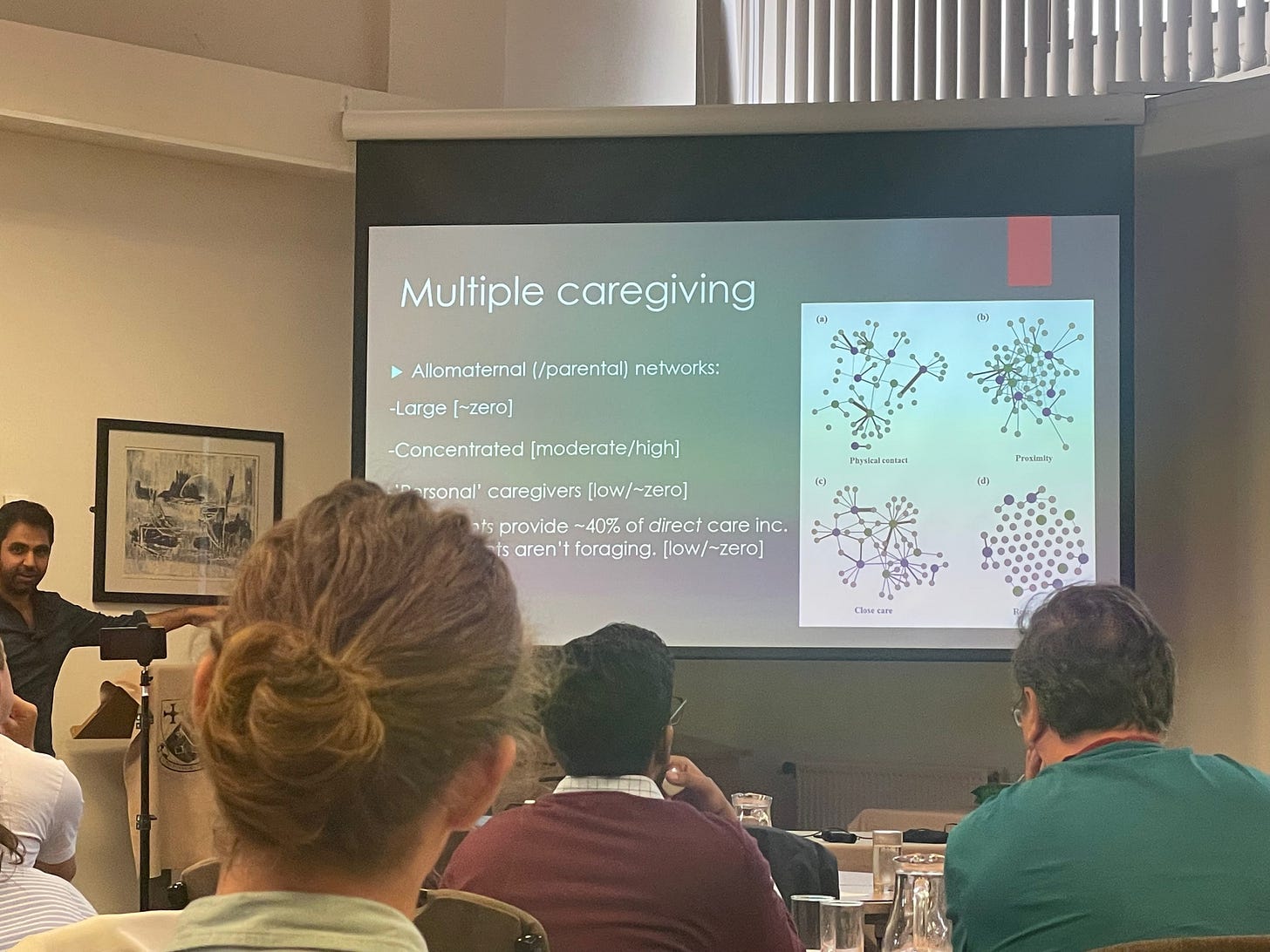
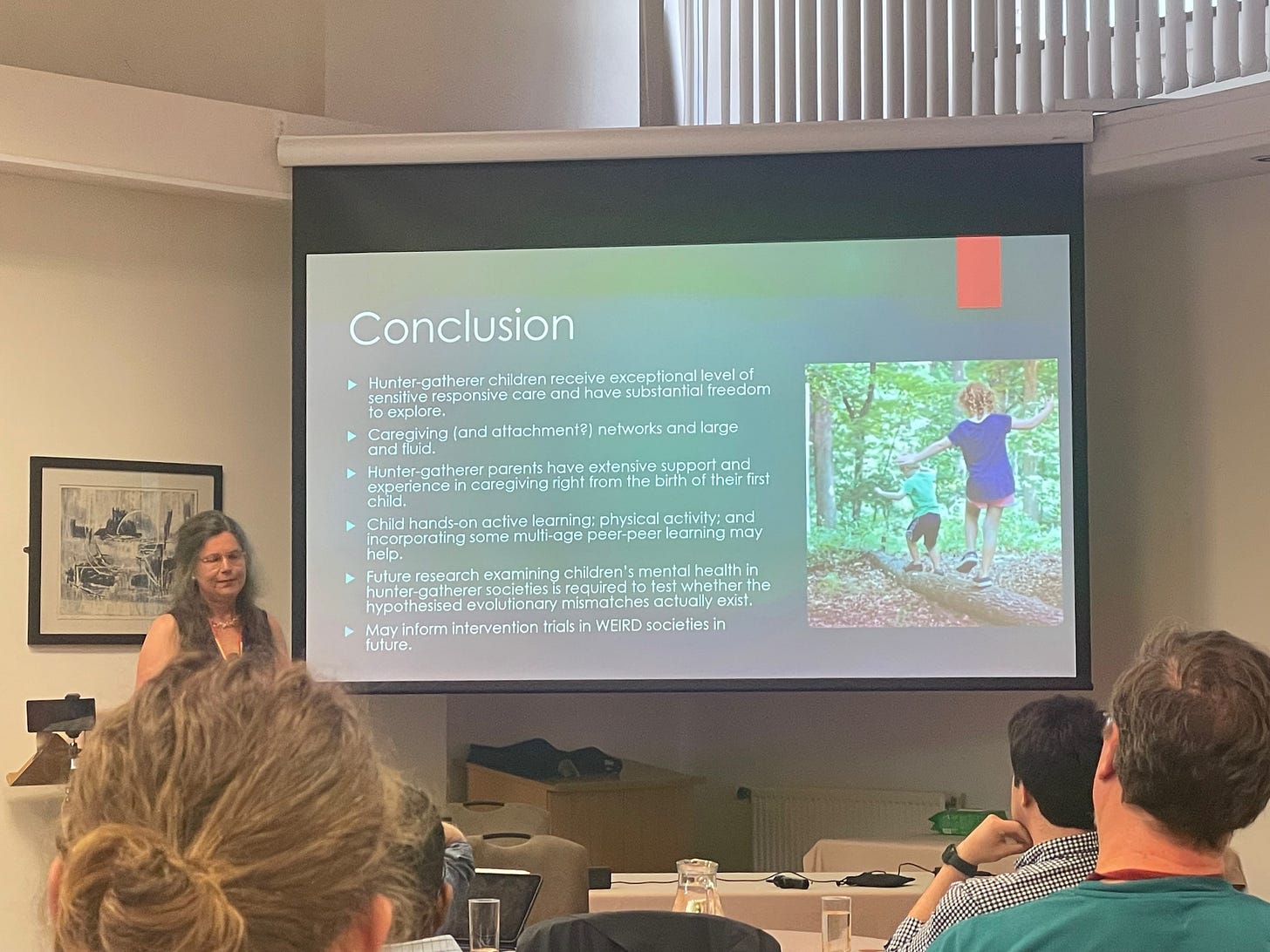
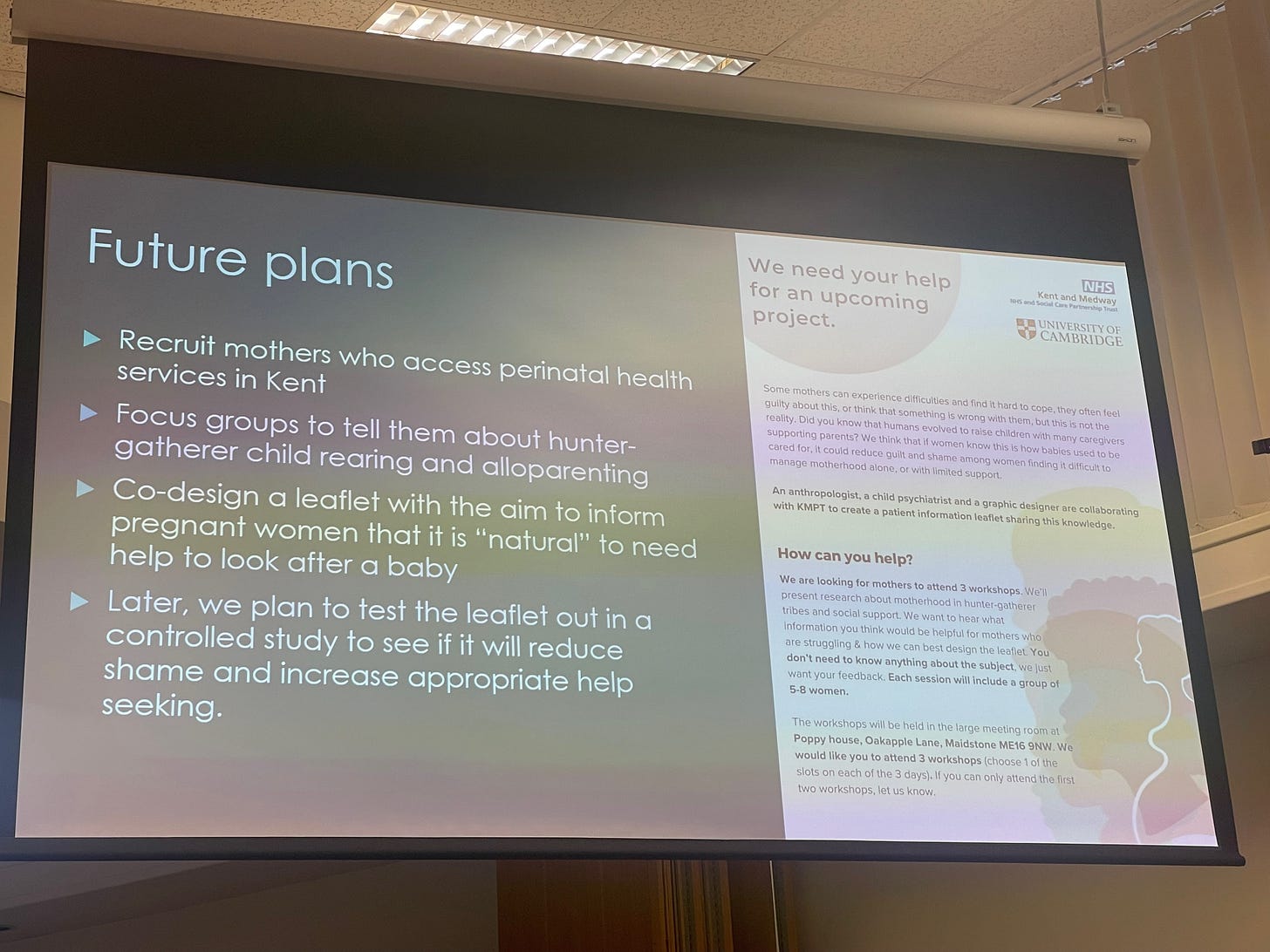
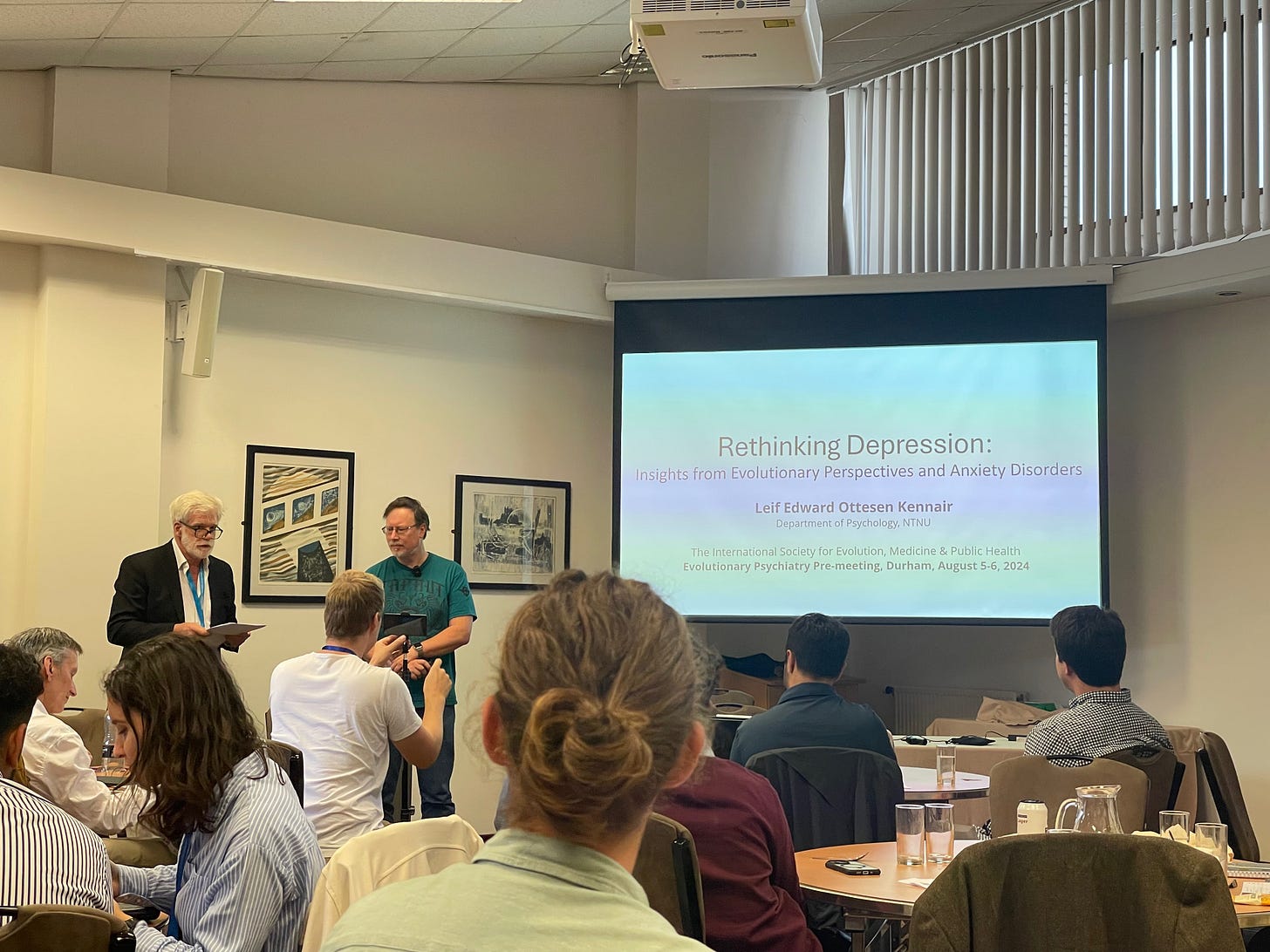
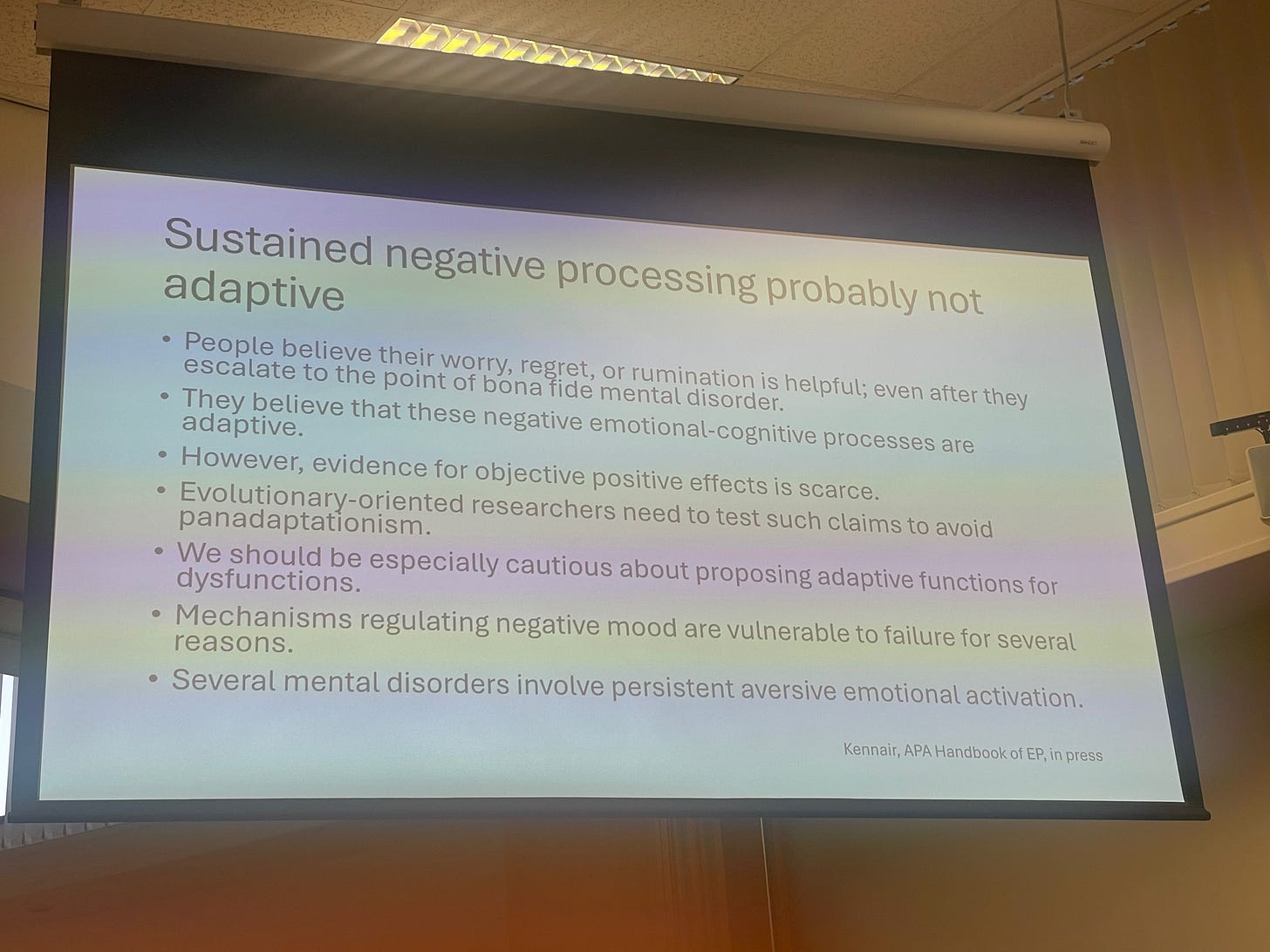
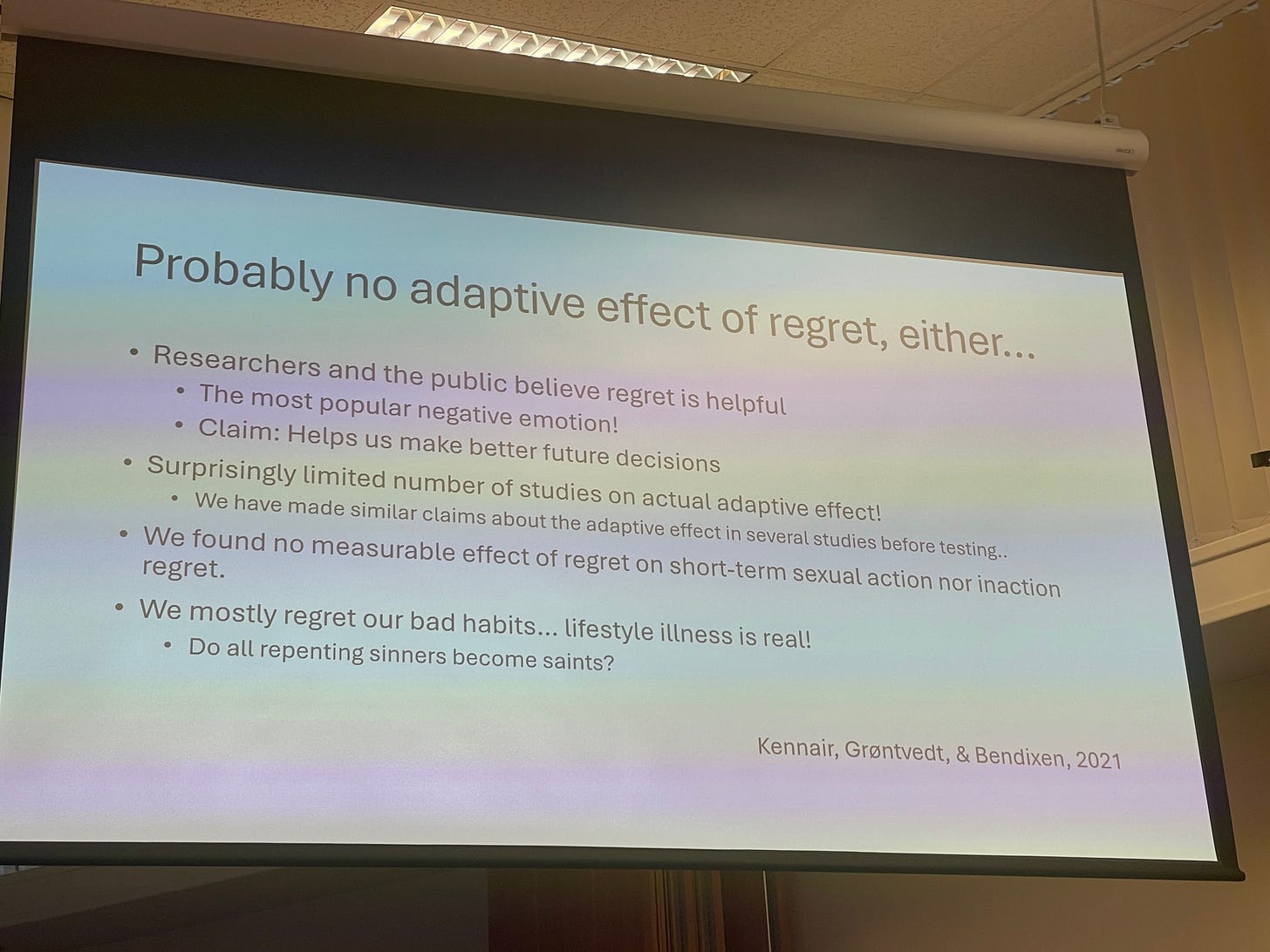



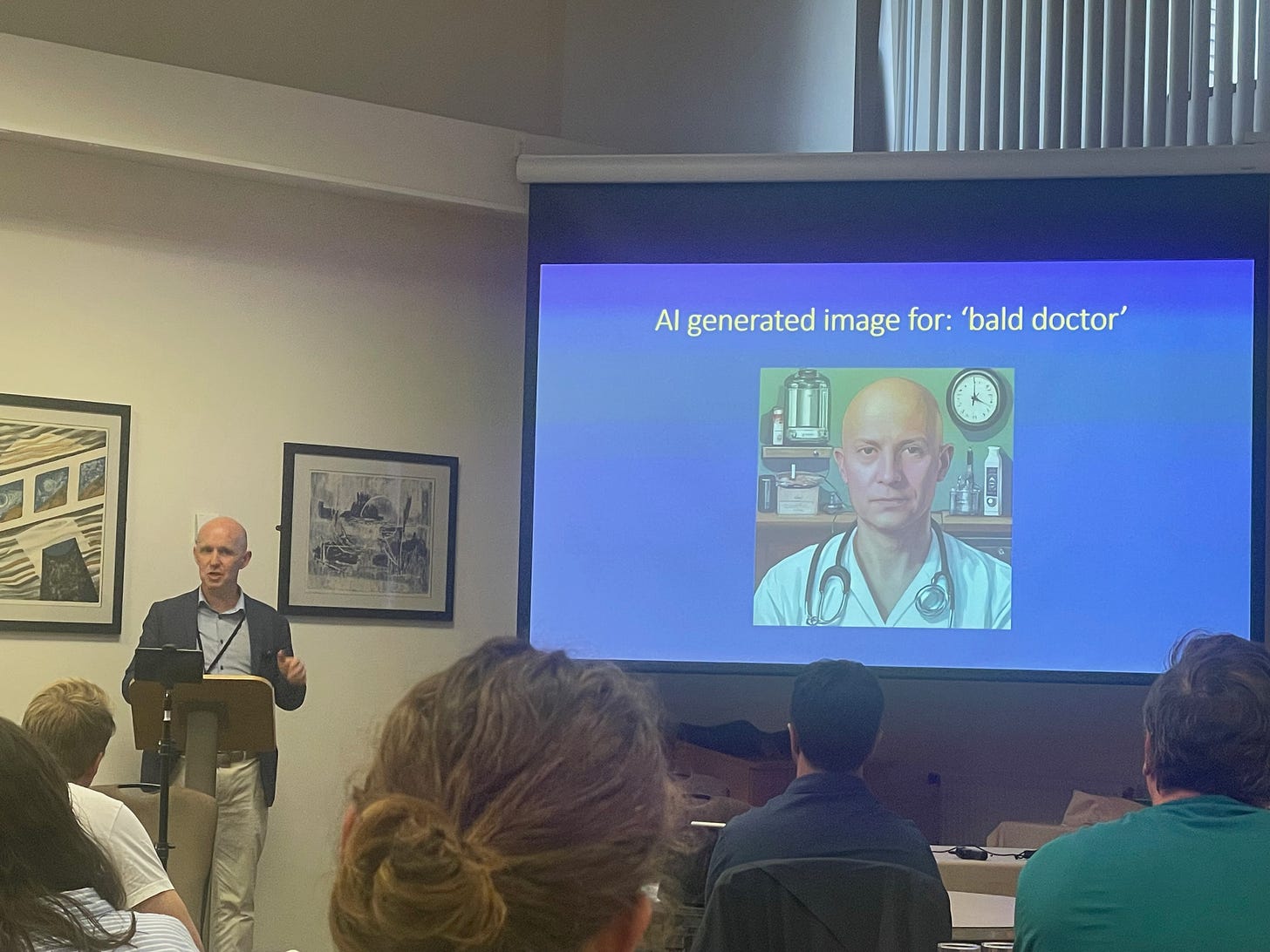
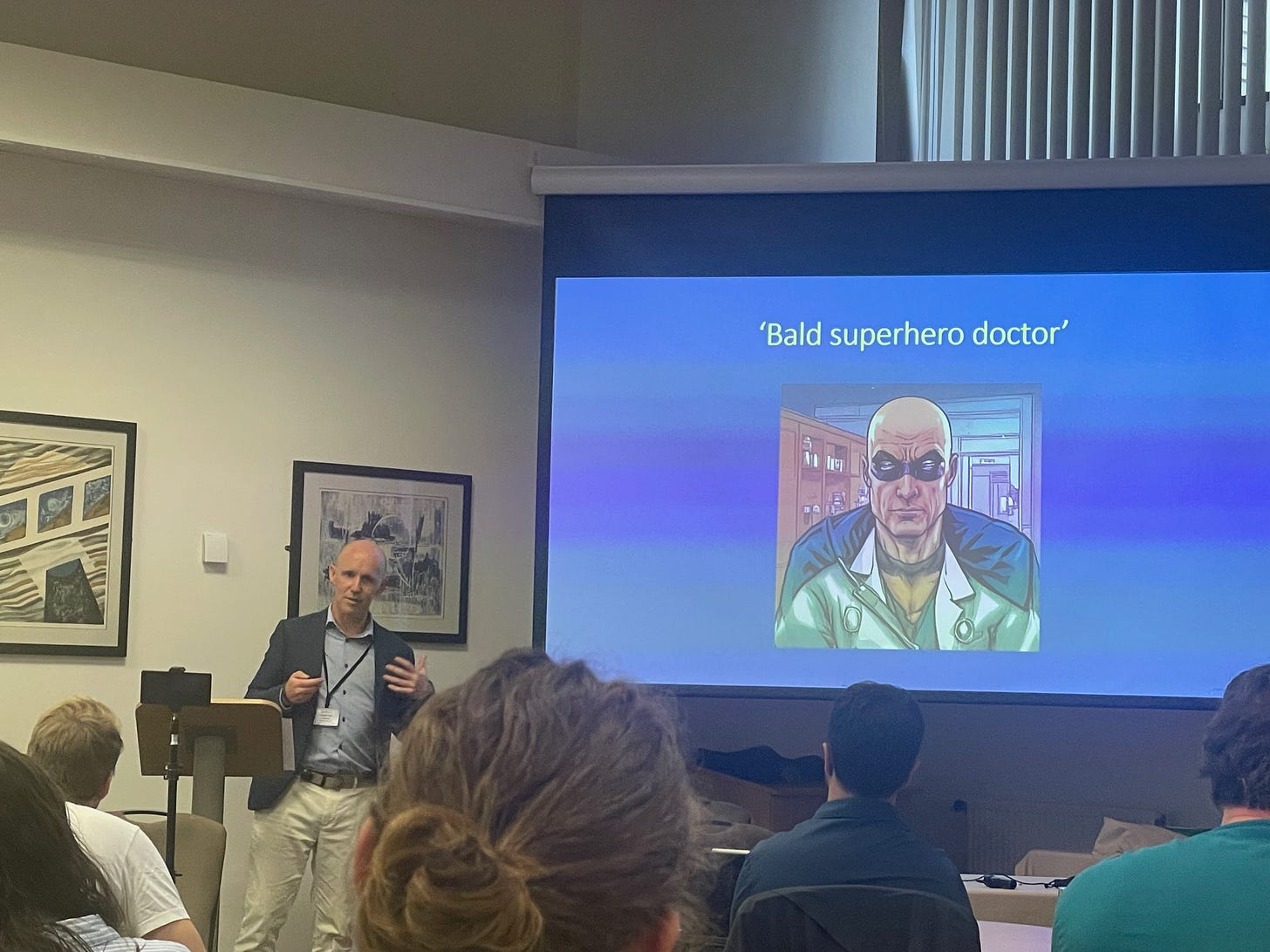
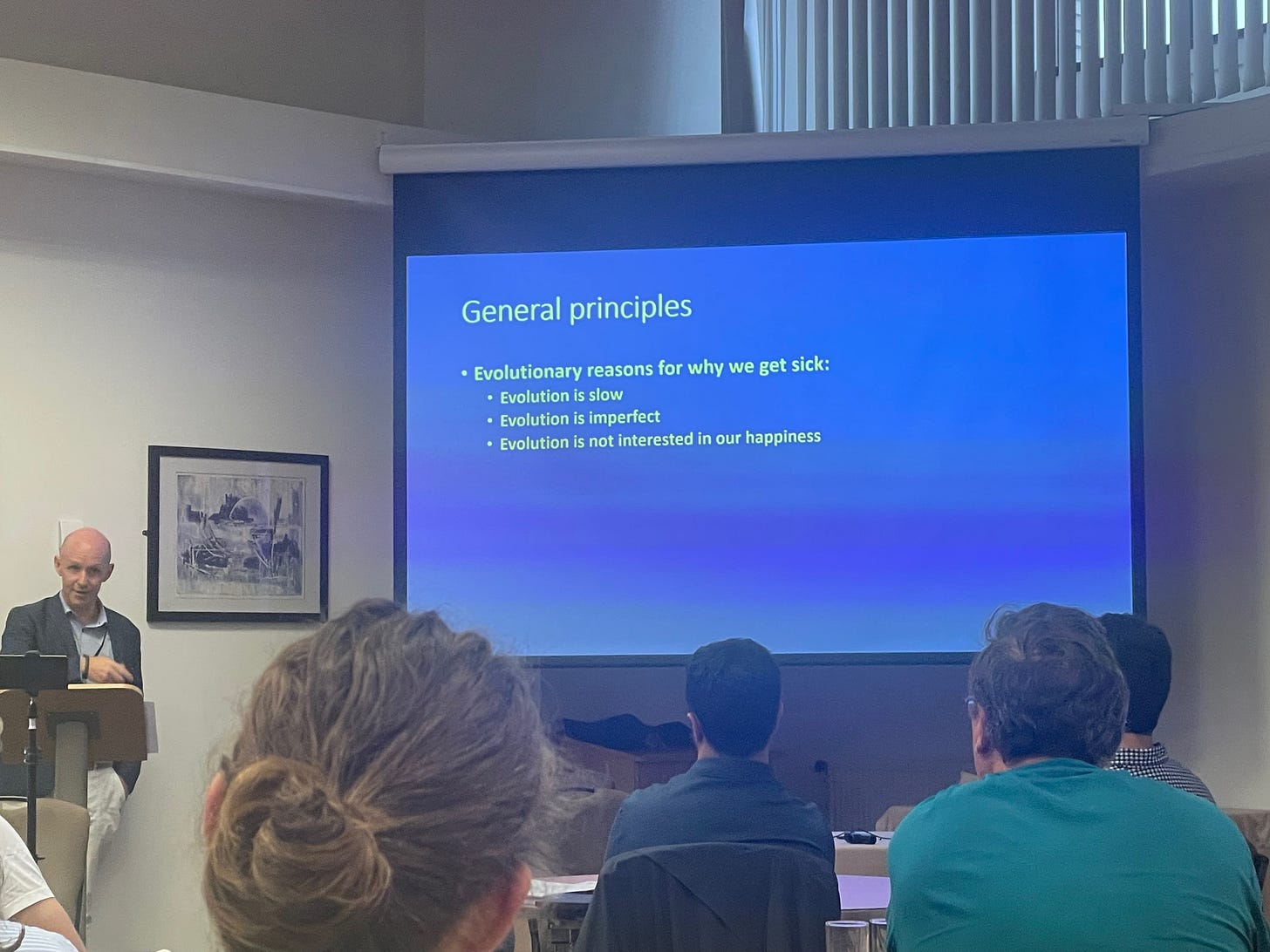

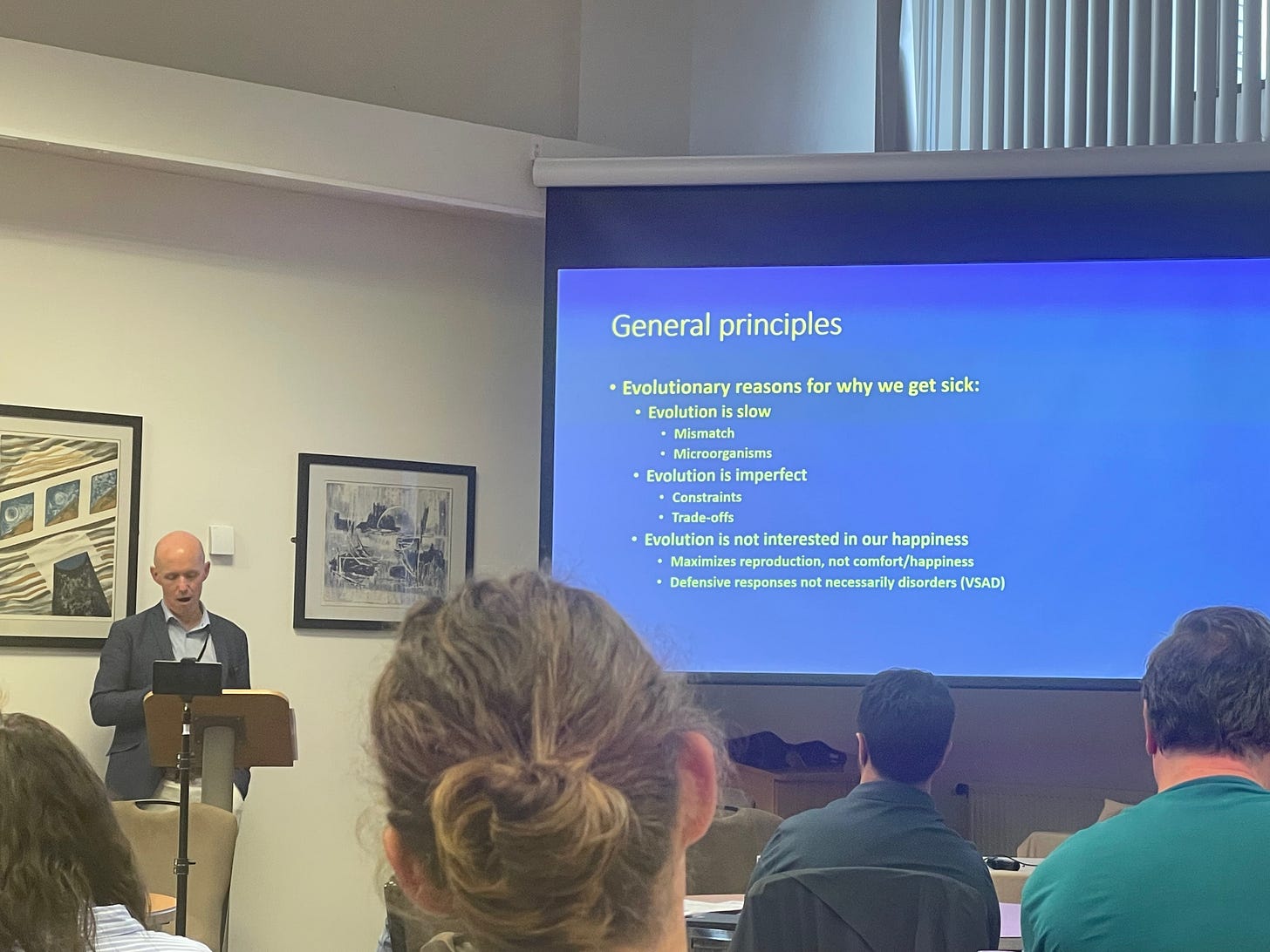
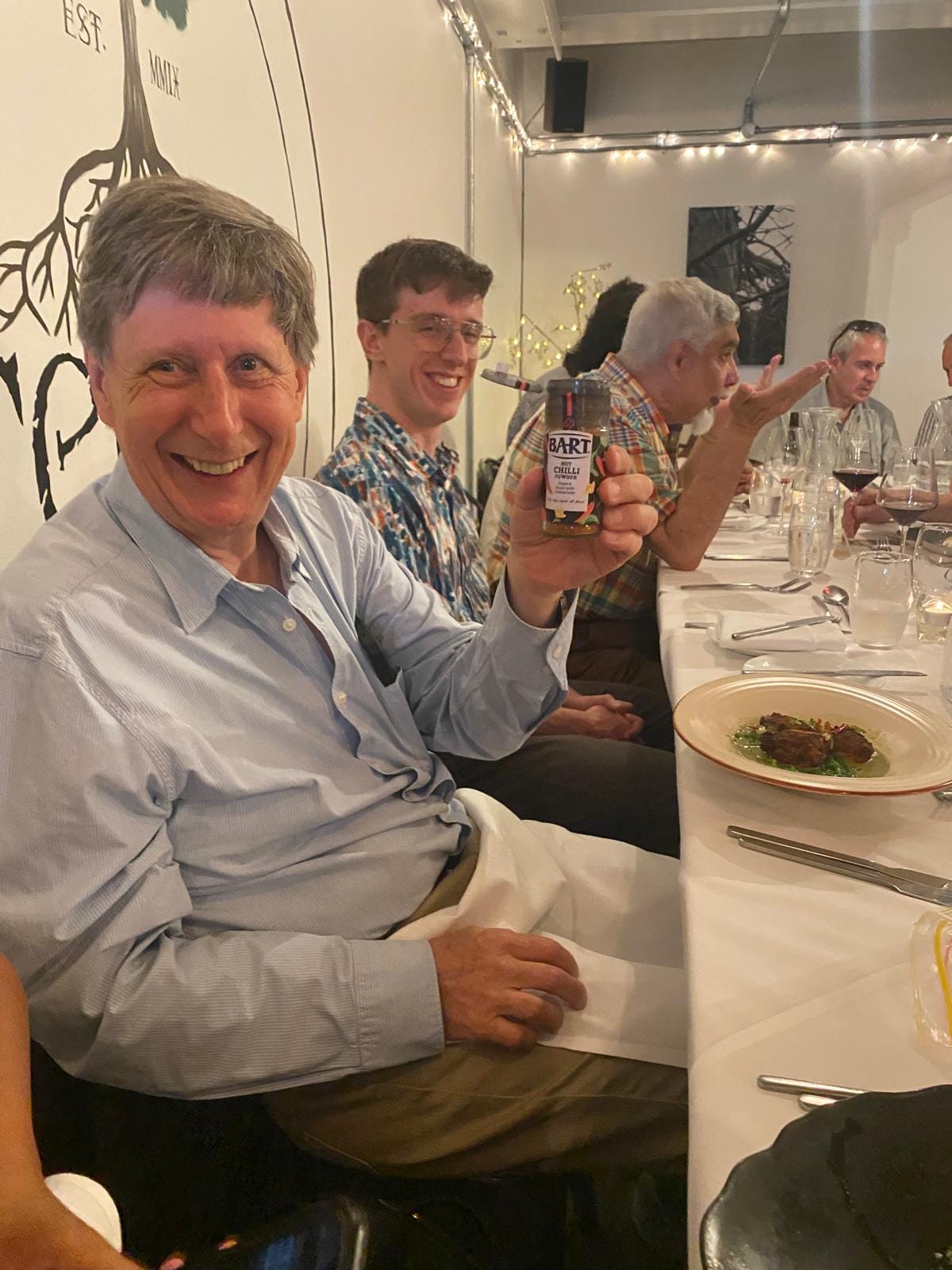

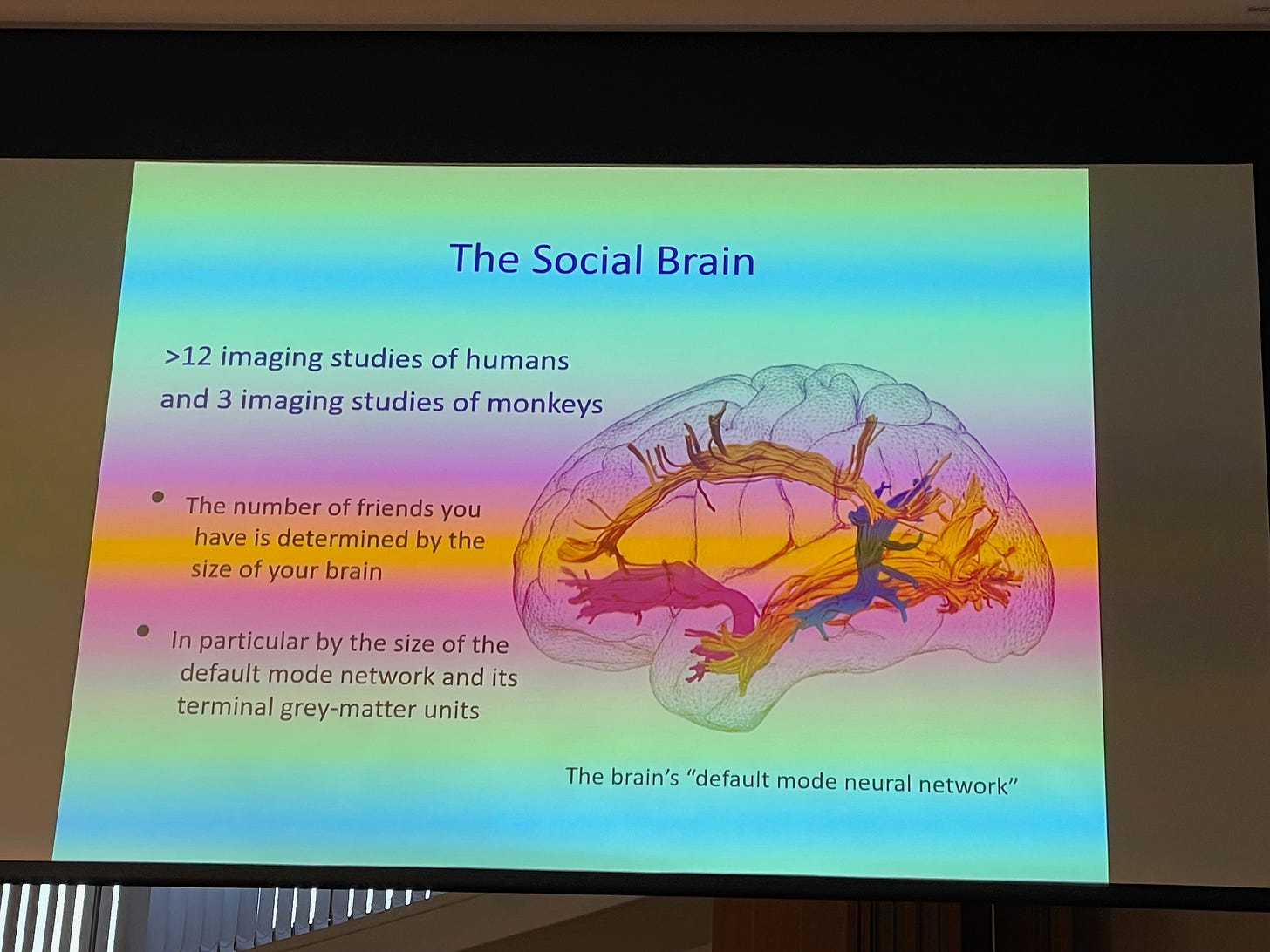



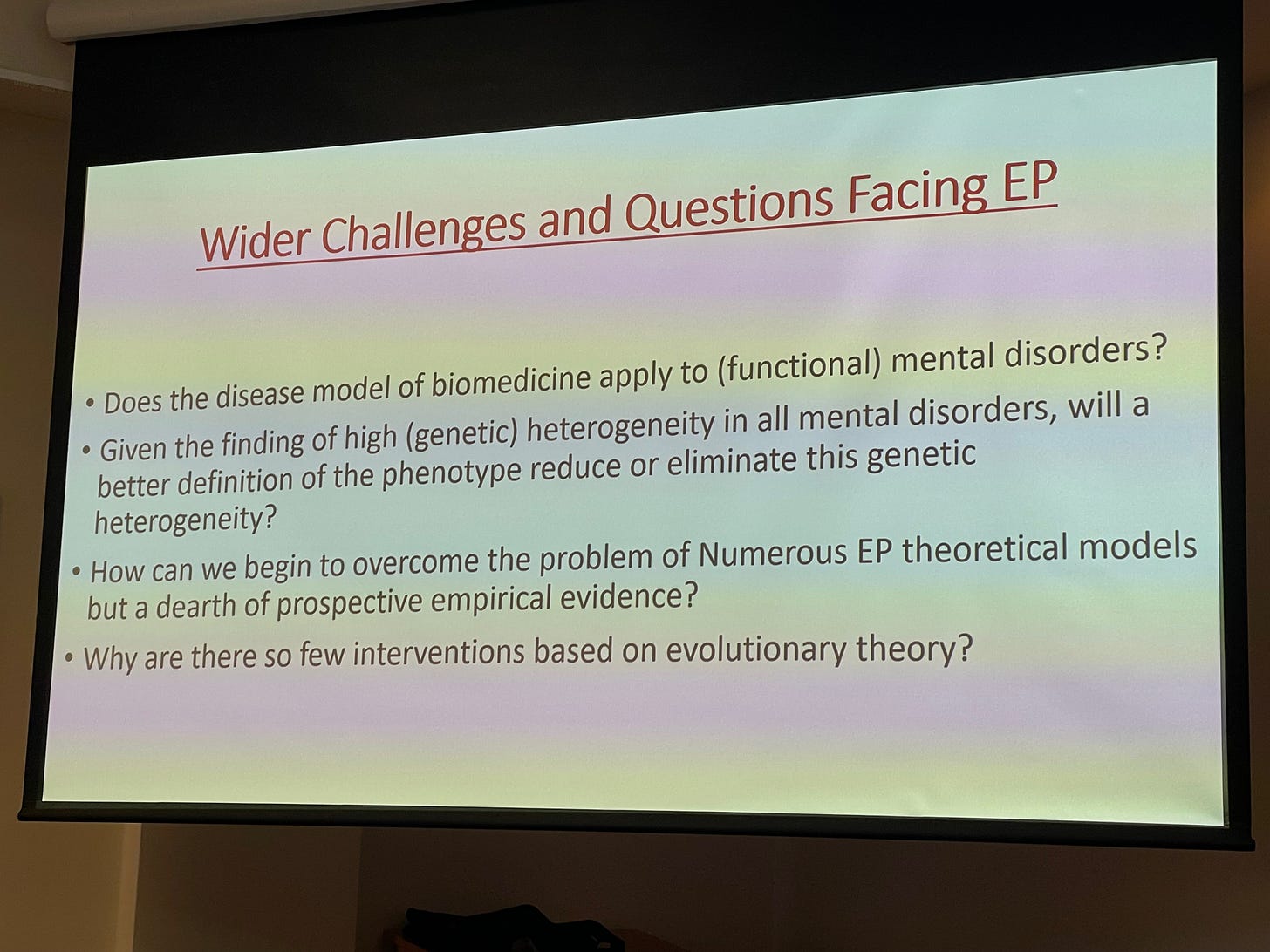




That looks like it was really interesting! For future conferences, you might consider inviting C.A. Soper, who has a radical new theory of mental illness that I just wrote about. He argues that mental illnesses aren’t illnesses at all but evolutionary adaptations designed to keep us from killing ourselves. https://open.substack.com/pub/eclecticinquiries/p/what-if-mental-illnesses-arent-illnesses?r=4952v2&utm_campaign=post&utm_medium=web
Wonderful! Are you planning of putting any of these talks on your YouTube channel? Thank you Gurjot!